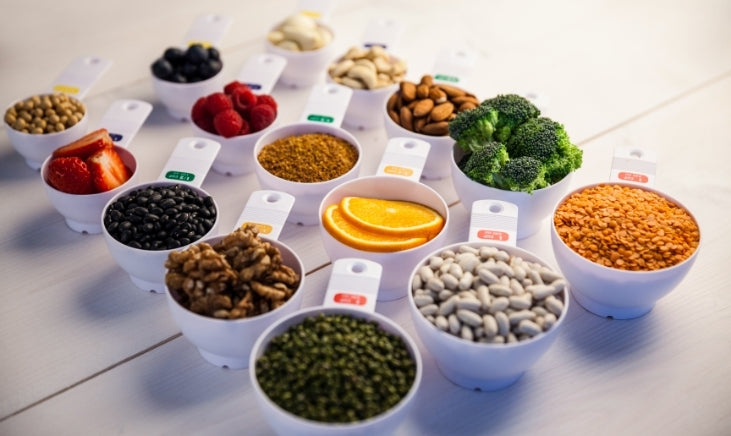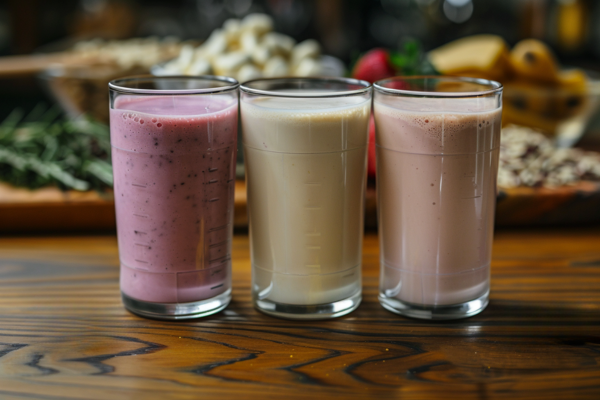Your cart is empty
Looks like you haven't added anything to your cart yet
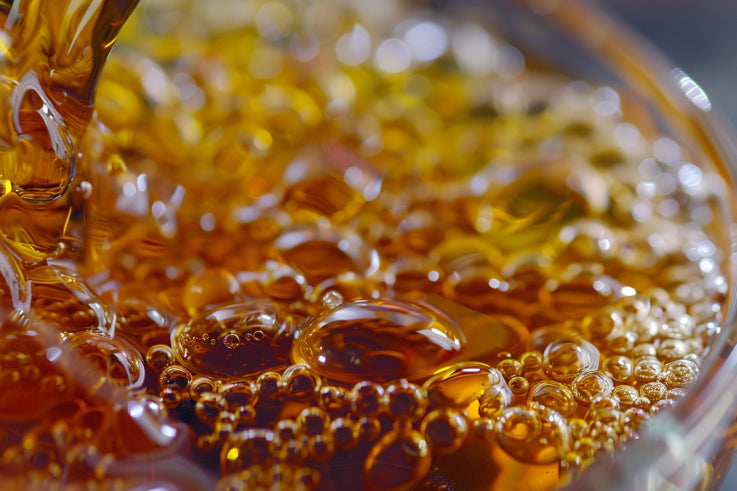
The Truth About High-Fructose Corn Syrup
High Fructose Corn Syrup: Everything You Need To Know
High Fructose Corn Syrup (HFCS) has been a staple in the food industry for decades, known for its sweetening properties and cost-effectiveness. However, its health implications have sparked debates among nutritionists, healthcare professionals, and consumers alike. This comprehensive article aims to shed light on all aspects of HFCS, from its production to its impact on human health.
What is High Fructose Corn Syrup?
High Fructose Corn Syrup is a sweetener made from corn starch. Through a series of enzymatic processes, corn starch is broken down into glucose, and then some of this glucose is converted into fructose. The final product is a mixture of glucose and fructose, primarily used in the food industry for its sweetness and ability to preserve the freshness of processed foods.
| Aspect | Detail |
|---|---|
| Definition | HFCS is a sweetener made from corn starch that contains glucose and fructose. |
| Also Known As | Glucose–fructose, isoglucose, glucose–fructose syrup |
| Production | Corn starch is broken down into glucose by enzymes, then some glucose is converted to fructose using D-xylose isomerase. |
| First Marketed | Early 1970s by the Clinton Corn Processing Company and the Japanese Agency of Industrial Science and Technology. |
| Types | HFCS-42 (used in baked goods, cereals) and HFCS-55 (used in soft drinks). |
Fructose Vs Glucose
Fructose is a simple sugar, commonly referred to as "fruit sugar," due to its abundance in fruits, vegetables, honey, and root vegetables. It's also a significant component of sucrose (table sugar) and high fructose corn syrup (HFCS), which are prevalent in processed foods. Unlike glucose, fructose is primarily processed in the liver, where excessive intake can lead to metabolic issues such as increased fat production and inflammation. Fructose does not directly raise blood sugar levels or trigger insulin release, which distinguishes its metabolic pathway from that of glucose.
Glucose, on the other hand, is a vital energy source found in a wide range of foods, including fruits and vegetables. It's also part of disaccharides like sucrose and lactose. Glucose is metabolized by various tissues throughout the body and is essential for producing energy. It raises blood sugar levels, prompting the release of insulin to help cells absorb glucose efficiently. However, when consumed in excess, especially from processed foods, glucose can be stored as fat, leading to weight gain and contributing to the risk of insulin resistance and diabetes.
Types of High Fructose Corn Syrup
There are two main types of HFCS, categorized based on their fructose content:
- HFCS-42: Contains approximately 42% fructose and is commonly used in baked goods, cereals, and beverages.
- HFCS-55: Contains about 55% fructose, making it sweeter than HFCS-42. It's primarily used in soft drinks.
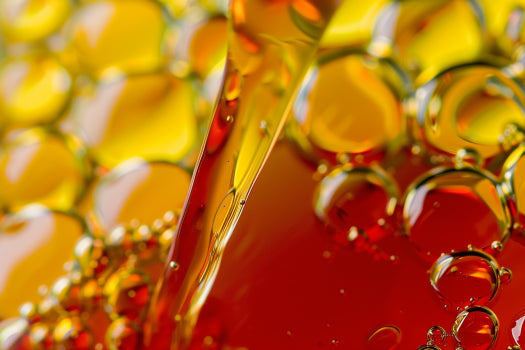
Production Process of HFCS
The production of HFCS involves several steps:
- Milling: Corn is milled to produce corn starch.
- Liquefaction: Enzymes are added to corn starch to break it down into glucose.
- Isomerization: Additional enzymes convert some glucose molecules into fructose.
- Purification: The syrup is purified and concentrated to the desired fructose content.
Corn Syrup vs High Fructose Corn Syrup
It's important to distinguish between corn syrup and high fructose corn syrup, as they are not the same product:
- Corn Syrup: Primarily glucose, corn syrup is a food syrup which is made from the starch of corn and contains varying amounts of maltose and higher oligosaccharides, depending on the grade.
- High Fructose Corn Syrup: A mixture of glucose and fructose, created by enzymatically converting some glucose into fructose to achieve a desired sweetness.
The key difference lies in the fructose content; HFCS has a higher fructose content compared to regular corn syrup, which affects its sweetness and the way the body processes it.
Is High Fructose Corn Syrup Bad For You?
The question of whether HFCS is bad for health is complex and has been the subject of extensive research and debate. While HFCS itself is not inherently harmful, the main concern arises from the excessive consumption of added sugars, including HFCS, which is linked to various health issues. Here are some considerations:
- Caloric Content: HFCS is high in calories and can contribute to weight gain if consumed in large amounts.
- Metabolic Effects: The body metabolizes fructose differently than glucose, with excess fructose potentially leading to insulin resistance, fatty liver, and increased abdominal fat.
- Appetite Regulation: Some studies suggest that fructose may not regulate appetite as effectively as glucose, potentially leading to overeating.
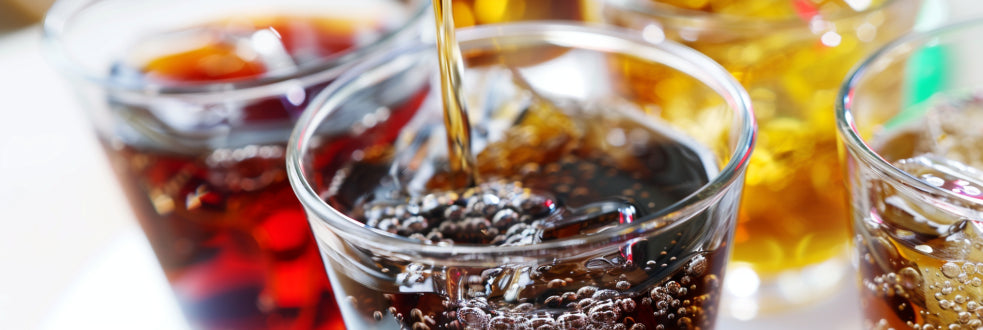
Health Risks & Side Effects From HFCS Consumption
Excessive consumption of HFCS has been associated with several health risks and side effects:
| Health Issue | Connection to HFCS |
|---|---|
| Obesity | The excessive intake of HFCS has been associated with the obesity epidemic. |
| Metabolic Syndrome | Consumption of HFCS-sweetened beverages is linked to an increased risk of metabolic syndrome. |
| Type 2 Diabetes | High intake of fructose from HFCS can lead to insulin resistance, a precursor to diabetes. |
| Liver Damage | Excessive fructose can cause non-alcoholic fatty liver disease (NAFLD). |
| Heart Disease | HFCS may contribute to cardiovascular disease through dyslipidemia and inflammation. |

- Obesity: HFCS can contribute to weight gain and obesity due to its high caloric content and potential effects on appetite and fat storage.
- Type 2 Diabetes: High intake of fructose can lead to insulin resistance, a key factor in the development of type 2 diabetes.
- Metabolic Syndrome: Regular consumption of HFCS-sweetened beverages is linked to increased risk of metabolic syndrome, which includes conditions like hypertension, dyslipidemia, and glucose intolerance.
- Liver Damage: Excessive fructose intake can lead to non-alcoholic fatty liver disease (NAFLD), characterized by fat accumulation in the liver.
- Heart Disease: Some studies suggest that HFCS can contribute to cardiovascular disease by promoting dyslipidemia and inflammation.
Conclusion
High-Fructose Corn Syrup is a widely used sweetener with potential health risks, including obesity, type 2 diabetes, and metabolic syndrome. While it is a cost-effective ingredient for the food industry, consumers should be mindful of its health implications and aim to limit their intake by choosing whole, unprocessed foods and reading food labels carefully. The recent studies underscore the complex effects of HFCS on health, and it is important to consider these findings when evaluating the role of HFCS in the diet and its potential health implications.
- Choosing a selection results in a full page refresh.







